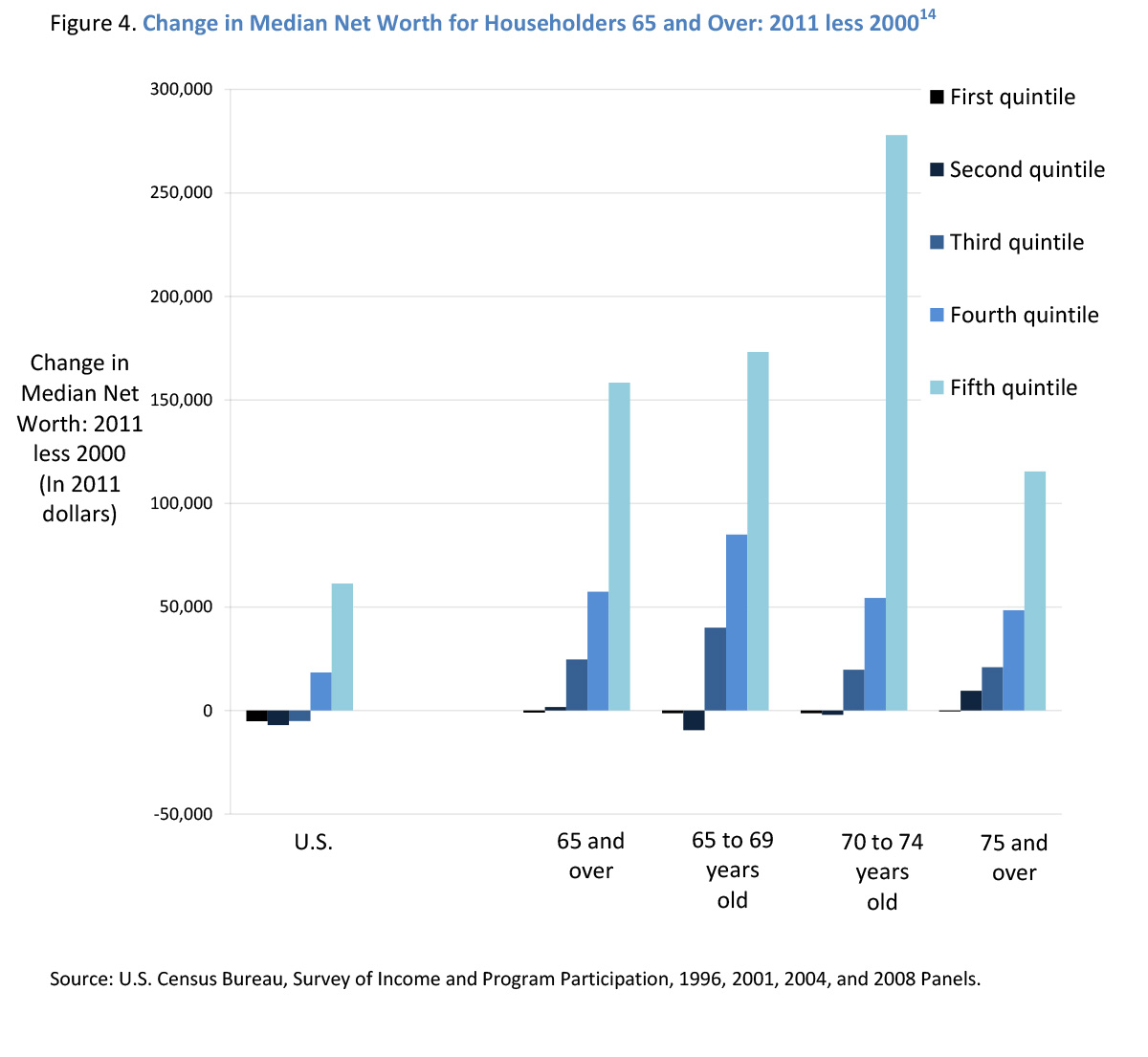Ben Brown points out the potential political upside to the aging population.
"Maybe it’s a brief glimpse, inspired by Pope Francis’s visit, of a collective will to be better humans. Or maybe it’s just the math. But I’m feeling more hopeful about future traction for arguments — and for action — for more meaningfully connected, livable communities."
"The reason why can be summed up in two charts: The first chart is the now-familiar elongation of population modeling as Baby Boomers, born between 1946 and 1964, move into the final stages of their lives. We used to characterize the generational swell Boomers created as a 'pig in the python.' These days, with the even bigger generation of Millennials, born after 1980, coming of age, the snake looks more proportional. Still, the sheer size of the Boomer generation enables it to prolong its capacity to bend trend lines over the next forty years.
"That capacity is multiplied by what the second chart makes obvious. Geezers have most of the money. Which in the pay-to-play society we’ve evolved over the last four decades, means older people — who vote more consistently, contribute more to political campaigns and have more highly developed networks of influence in business and non-profit institutions — are likely to have more clout in decision-making that touches the lives of citizens of all ages and at all income levels."

Aging population in America: Page 2, U.S Census pdf, The Next Four Decades: The Older Population in the United States, 2010, 20109 to 2050.

Census Chart of relative median household wealth by age.
"Let’s go out on a limb here and suggest that rich people’s disproportionate power has not always been a wonderful thing for the rest of us. They’ve been able to cherry-pick issues and programs that benefit their exclusive interests and use their political and economic leverage to protect and enhance their privilege."
Ben Brown goes on to delve into what's likely to change as the wealthy grow older.
FULL STORY: The Unkickable Can: Towards a ‘Livability Synthesis’

Planetizen Federal Action Tracker
A weekly monitor of how Trump’s orders and actions are impacting planners and planning in America.

Chicago’s Ghost Rails
Just beneath the surface of the modern city lie the remnants of its expansive early 20th-century streetcar system.

Amtrak Cutting Jobs, Funding to High-Speed Rail
The agency plans to cut 10 percent of its workforce and has confirmed it will not fund new high-speed rail projects.

Ohio Forces Data Centers to Prepay for Power
Utilities are calling on states to hold data center operators responsible for new energy demands to prevent leaving consumers on the hook for their bills.

MARTA CEO Steps Down Amid Citizenship Concerns
MARTA’s board announced Thursday that its chief, who is from Canada, is resigning due to questions about his immigration status.

Silicon Valley ‘Bike Superhighway’ Awarded $14M State Grant
A Caltrans grant brings the 10-mile Central Bikeway project connecting Santa Clara and East San Jose closer to fruition.
Urban Design for Planners 1: Software Tools
This six-course series explores essential urban design concepts using open source software and equips planners with the tools they need to participate fully in the urban design process.
Planning for Universal Design
Learn the tools for implementing Universal Design in planning regulations.
Caltrans
City of Fort Worth
Mpact (founded as Rail~Volution)
City of Camden Redevelopment Agency
City of Astoria
City of Portland
City of Laramie




























